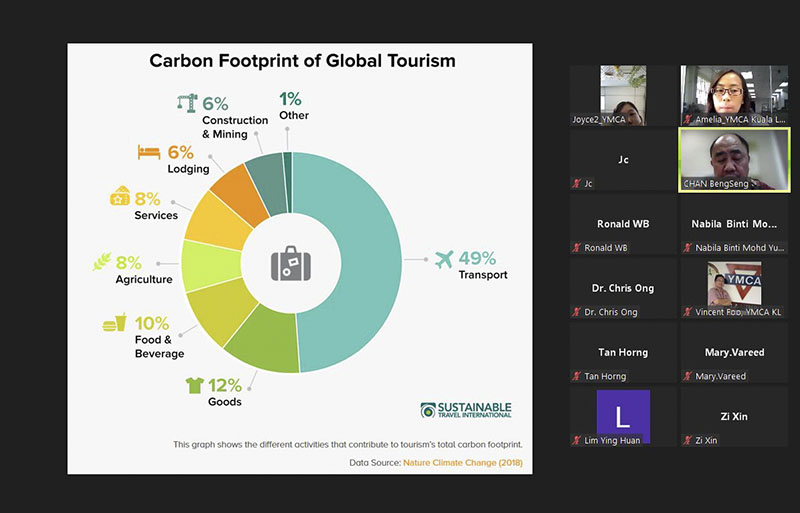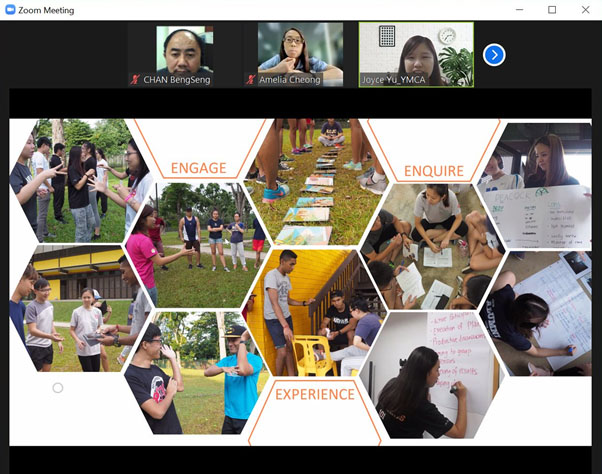GATN networking with BERJAYA University College, Malaysia
COVID-19 brought global travel and tourism industry to a standstill for almost 3 years. Despite the setback brought about by global lockdowns, travel and tourism industry remains one of the most important industries that creates jobs and brings in foreign exchange. Hence, many countries, especially the Small Island developing States and least developed countries are looking forward to the reopening of international borders and the resumption of international travel to rebuild their battered economies.
Travel and tourism may bring a lot of economic gains but uncontrolled travel and tourism have their negative consequences. In recent years, researches have begun to raise awareness of some negative impacts of uncontrolled tourism. Overtourism is a relatively new word in the tourism industry. It is used to describe a situation in which too many tourists visiting a particular destination and conflicts arise between locals and visitors at tourism destinations. Overtourism is when rent prices push out local tenants to make way for holiday rentals. Overtourism is when tourist consumption creates inflation in cost of goods and services. Overtourism is when narrow roads become jammed with tourist vehicles.
Tourism also impacts climate change. As the world becomes more affluent, the tourism sector is expected to grow by an average of 4% annually. This pursuit of economic growth comes with a significant carbon burden, as tourism is significantly more carbon-intensive than other potential areas of economic development. A Yale Digest reports that 80% of all flights were for holiday reasons and tourism accounts for 8% of Global CO2 Emissions. Tourists are offenders, too. Their holiday consumption habits contribute to increased use of energy, water and other natural resources. The consumerist nature of mass tourism contributes to an unsustainable activity that seriously challenges the sustainability of our planet earth.
As countries begin to reopen their borders to tourism after a long hiatus due to COVID-19, we need to consider seriously whether we can still travel the same way as we did. We need to promote responsible and sustainable travel behaviour to counter negative impacts of the travel and tourism industry.
Given the strong endorsements of Governments and the UNWTO for tourism, it is not possible to stop tourism or campaign against tourism. However, it is possible to work to change the nature or traditional understanding of tourism by developing and promoting responsible and sustainable perspectives and practices in tourism. We begin with promoting and offering alternative ways to travel responsibly and sustainably. The long term impact on tourism would be a changed mind-set of people on tourism and the beginning of a new trend of traveling responsibly and sustainably.
Strategy of GATN is to work through the YMCAs and reach out to our network with like-minded NGOs and educational institutions that are concerned with the future and sustainability of tourism. We hope to make lasting effect and impact in the lives of the young people.
1. Changing the behaviour and lifestyle when traveling – by introducing responsible and sustainable activities at the destinations – focus on low carbon activities and carbon mitigating activities
2. Changing the motivation and outlook about traveling - abandon the pleasure and “bucket list” mind-set of traditional tourist – to have more meaningful travel interactions and are interested in giving something back as they travel.
It is in this context that the YMCA Kuala Lumpur, Malaysia, organised a Webinar on 11th August 2022 to introduce on GATN Programmes to BERJAYA University College. Dr. Chris Ong, Dean of Faculty Hospitality & Tourism, together with other lecturers and students participated in the webinar. It is the first time for BERJAYA University College to introduce this programme to their students.
The webinar started off with a short introduction on ‘What is YMCA & What we are doing’ by Amelia Cheong, the GATN Manager of YMCA Kuala Lumpur. Chan Beng Seng, the APAY’s GATN Coordinator presented an in-depth on GATN Programmes to the students and lecturers. During the sharing on GATN Programmes, Chan Beng Seng explained on the various impacts of climate change on tourism and the reasons why we need to travel responsibly and sustainably. After the introduction, Joyce Yu from YMCA Singapore who is also part of the GATN Manager team was invited to share on International Service Programmes and also the experiences which her groups participated, as a sending YMCA. She also shared on the volunteer’s journey from training to recce and follow by real life experience at the respective hosting countries. Once the volunteers returned back to home country they will share and implement what they had experience back to their home country. Before the webinar ends, YMCA Kuala Lumpur, Amelia Cheong shared on the process as a hosting YMCA and also the experiences which the groups had participated. In the CHANGE Principle, YMCA Kuala Lumpur GATN Programmes are organise according to Community Centred, Holistic In Approach & Nature Conserving. At the same time, Economically viable is also integrate in each group. For Advocating Global Citizenship and Gender & Child Sensitive are being planned and designed for the coming years.
BERJAYA University College is pleased with the webinar and would like have another round of this webinar to be shared with the next intake of students.
Submitted by: Amelia Cheong, Program Secretary,Kuala Lumpur YMCA








